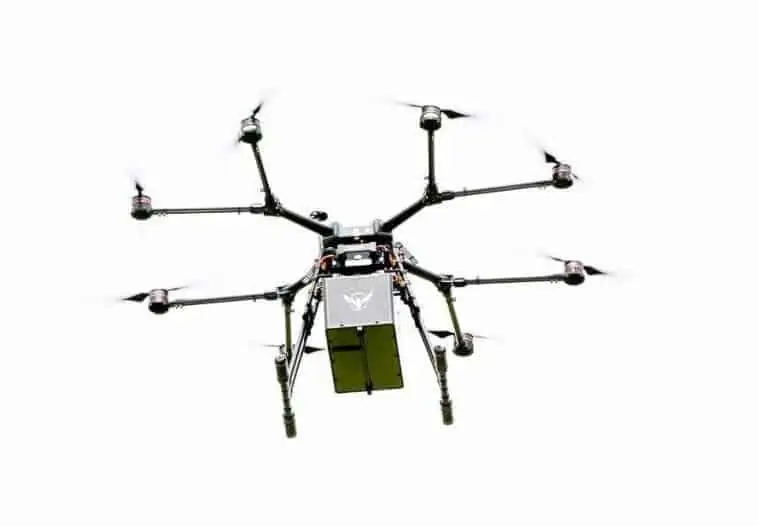A consortium led by humanitarian aid organization Direct Relief has announced the successful completion of a program testing the potential to deliver temperature-controlled medicines and vaccines by using unmanned aerial vehicles (UAVs). It is the fourth in a series of proof-of-concept missions the group has undertaken to demonstrate the potential of using UAVs to safely deliver temperature-dependent medicines and vaccines to hard-to-reach locations. Direct Relief, Merck (known as MSD outside the U.S. and Canada), Softbox, AT&T and Volans-i are working together on the project.
The successful pilot and the potential of UAV technology could represent an important step forward in biopharmaceutical supply chain innovation and for humanitarian efforts around the world. The pilot was conducted in the Bahamas. The group previously conducted test flights in Switzerland and Puerto Rico.
“Experience and research consistently show that those most at risk of health crisis in disasters live in communities which are likely to be cut off from essential health care due to disruption of transportation and communications,” said Andrew Schroeder, who, among other responsibilities, leads analytics programs, data visualization, and geospatial analytics for Direct Relief. “Drone delivery is one of the most promising answers to this problem. More remains to be done to operationalize medical cargo drones in emergencies. But successful tests like this one demonstrate that remarkable new humanitarian capabilities are emerging quickly.”
While the technology is promising, the potential viability of the technology for real-world application will depend on several factors, including tackling diverse and evolving regulatory challenges around the world.
“This successful pilot demonstrates the potential of innovative UAV technology to aid in delivery of temperature-dependent medicines and vaccines to people who critically need them,” said Craig Kennedy, senior vice president, Supply Chain, at Merck. “The potential of UAV technology is just one of the many areas in which we are innovating across our business and our supply chain to maximize our ability to save and improve lives around the world.”
The pilot test was conducted fully autonomously with cold-chain delivery technology allowing for precise temperature control of medicines and vaccines at temperatures as low as minus 70 degrees Celsius, the temperature required for storing and transporting some life-saving medicines and vaccines. It utilized live, continuous temperature tracking through the duration of the flight with cloud-based, real-time data analysis and collection, designed to ensure safe and effective delivery.
“Our goal is to revolutionize the way goods and people move in the world,” said Hannan Parvizian, CEO and Co-Founder of Volans-i, in San Francisco. “Successfully demonstrating our ability to make temperature-controlled drone deliveries in various climate and terrain conditions across these pilots is a first step towards realizing our vision for a world in which no one should be deprived of access to life-saving medical supplies and vaccination due to lack of infrastructure and responsiveness of the transportation ecosystem.”
Richard Wood, Director, Digital Connected Technologies at Softbox, said, “This most recent proof-of-concept test has once again demonstrated the capabilities of the Softbox SKYPOD for the transportation of life saving medicines, this time at ultra-low temperatures. To ensure full track and trace throughout the test flight Softbox utilized Internet of Things (IoT) technologies and data dashboard services provided by AT&T. The data collected during the successful flights has shown everybody involved the power of IoT to provide full visibility of the Cold Chain, even in the most extreme environments while using innovative transportation modes. Through close collaboration with Direct Relief, Merck, Volans-I and AT&T, we have successfully proven the capabilities of this unique and ground-breaking combination of cutting-edge technologies and now will focus our efforts on completing subsequent pilot projects.”
In the test, a UAV flew over open water between the islands of the Bahamas, beyond the operator’s line of sight. Volans-i built and operated the all-electric drones, and the temperature-controlled payload box was developed by Softbox and connected by AT&T. Merck initiated the idea and provides supply chain expertise. The collaborators will now advance the pilot program so the technology can be tested in Africa and Latin America. The group of organizations involved in the successful pilot plan to continue to explore ways in which this technology can be used to deliver life-saving medicines and vaccines to the communities that need them most.



















